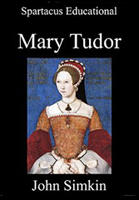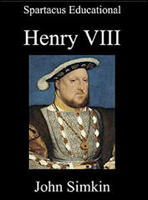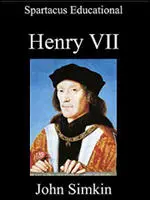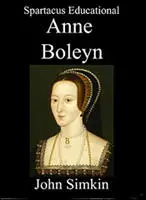Edward Hall
Edward Hall, the son of John and Katherine Hall, was born in London in 1497. His father was a successful grocer and was able to pay for his son to be educated at Eton College. Hall entered Gray's Inn in 1521 and began a career in law. It is believed he was elected to the House of Commons for the first time in about 1523. According to his biographer, Peter C. Herman, Hall met Henry VIII at Bridewell Castle in 1528. (1)
In 1529 he represented Much Wenlock in Shropshire. During this period he was a close friend of Thomas Cromwell. In June 1535, the King appointed him as the Under-Sheriff of London. However, there is evidence that he had sympathy with Protestant reformers. For example, there is evidence that he helped Anne Askew, a woman arrested on suspicion of heresy in March 1546. She was interviewed by Edmund Bonner, the Bishop of London who had obtained the nickname of "Bloody Bonner" because of his ruthless persecution of heretics. (2)
After a great deal of debate Aske was persuaded to sign a confession which amounted to an only slightly qualified statement of orthodox belief. With the help of her friend, Edward Hall she was released after twelve days in prison. Askew's biographer, Diane Watt, argues: "It would appear that at this stage Bonner was concerned more about the heterodoxy of Askew's beliefs than with her connections and contacts, and that he principally wanted to rid himself of a woman whom he found obstinate and vexatious. Her treatment during her first examination suggests, therefore, that Askew's opponents did not yet view her as particularly influential or important." (3)
Edward Hall died on 31st March 1547. During his life he wrote about the history of the period. This book, History of England, was published by his friend, Richard Grafton, in 1548. Peter C. Herman has argued: "Hall's text represents an important confluence of humanist and vernacular historical writing. He did not produce a raw chronology of events; rather, he absorbed the lessons of humanist historiography both in giving his history a narrative shape and in concerning himself with political rather than divine causes. In addition to providing him with important source material, Polydore Vergil's Anglica Historia also taught Hall the need to make a critical evaluation of his sources. The London chronicle tradition - histories written about London from the perspective of the city merchants - also exerted an important influence. For example, Hall pays particular attention to how political developments, especially Henry VIII's enforced loans to pay for his war in France, affected London's merchant class. One of Hall's signal achievements may be the melding of continental historiographical techniques with the London chronicle tradition's concern for local history. His decision to write in English rather than Latin not only shows his desire to reach a local rather than an international audience, but also reflects a growing national pride and a desire to write English history in a way that will match the achievements of historians both classical (for example, Tacitus and Livy) and continental (for example, Froissart and Philippe de Commines)." (4)
In 1550 Richard Grafton issued a second edition of History of England. Because of the work's clear Protestant sympathies, Mary Tudor issued a proclamation in 1555 calling for the destruction of the book.
| Spartacus E-Books (Price £0.99 / $1.50) | ||||||
|---|---|---|---|---|---|---|
Primary Sources
(1) Peter C. Herman, Edward Hall : Oxford Dictionary of National Biography (2004-2014)
Edward Hall started his education at Eton College and was admitted to King's College, Cambridge, in 1514; he graduated BA in 1518. By 1521 he had entered Gray's Inn. Subsequently Hall made his living as a lawyer, and he often served in parliament. Hall may have been first elected to the House of Commons in 1523; by 1528 he was sufficiently established to be included among ‘the nobility, judges and councillors and divers other persons’ summoned by Henry VIII to Bridewell Castle to hear the king explain his "great scruple" in person. In 1529 he was certainly elected to the house to represent the borough of Much Wenlock. Consequently his comments about the work of this, the Reformation Parliament, constitute an eyewitness account, and almost certainly he was among those "learned in the law" appointed by the Commons to draw up bills concerning the probates of wills, mortuaries, clerical non-residence, and pluralities.
(2) Edward Hall, History of England (1548)
Surely the most of the lay people of England, which knew not the law of God, sore murmured at the matter (Henry's proposed divorce) and much the more, because there was a gentlewoman in the court called Anne Boleyn.
Student Activities
Henry VIII (Answer Commentary)
Henry VII: A Wise or Wicked Ruler? (Answer Commentary)
Henry VIII: Catherine of Aragon or Anne Boleyn?
Was Henry VIII's son, Henry FitzRoy, murdered?
Hans Holbein and Henry VIII (Answer Commentary)
The Marriage of Prince Arthur and Catherine of Aragon (Answer Commentary)
Henry VIII and Anne of Cleves (Answer Commentary)
Was Queen Catherine Howard guilty of treason? (Answer Commentary)
Anne Boleyn - Religious Reformer (Answer Commentary)
Did Anne Boleyn have six fingers on her right hand? A Study in Catholic Propaganda (Answer Commentary)
Why were women hostile to Henry VIII's marriage to Anne Boleyn? (Answer Commentary)
Catherine Parr and Women's Rights (Answer Commentary)
Women, Politics and Henry VIII (Answer Commentary)
Cardinal Thomas Wolsey (Answer Commentary)
Historians and Novelists on Thomas Cromwell (Answer Commentary)
Martin Luther and Thomas Müntzer (Answer Commentary)
Martin Luther and Hitler's Anti-Semitism (Answer Commentary)
Martin Luther and the Reformation (Answer Commentary)
Mary Tudor and Heretics (Answer Commentary)
Joan Bocher - Anabaptist (Answer Commentary)
Anne Askew – Burnt at the Stake (Answer Commentary)
Elizabeth Barton and Henry VIII (Answer Commentary)
Execution of Margaret Cheyney (Answer Commentary)
Robert Aske (Answer Commentary)
Dissolution of the Monasteries (Answer Commentary)
Pilgrimage of Grace (Answer Commentary)
Poverty in Tudor England (Answer Commentary)
Why did Queen Elizabeth not get married? (Answer Commentary)
Francis Walsingham - Codes & Codebreaking (Answer Commentary)
Codes and Codebreaking (Answer Commentary)
Sir Thomas More: Saint or Sinner? (Answer Commentary)
Hans Holbein's Art and Religious Propaganda (Answer Commentary)
1517 May Day Riots: How do historians know what happened? (Answer Commentary)
References
(1) Peter C. Herman, Edward Hall : Oxford Dictionary of National Biography (2004-2014)
(2) Alison Plowden, Tudor Women (2002) page 111
(3) Diane Watt, Anne Askew : Oxford Dictionary of National Biography (2004-2014)
(4) Peter C. Herman, Edward Hall : Oxford Dictionary of National Biography (2004-2014)




